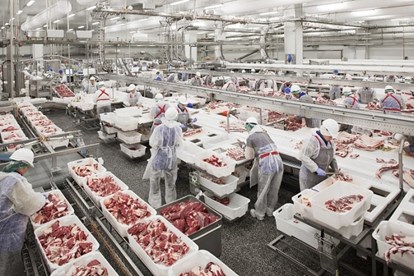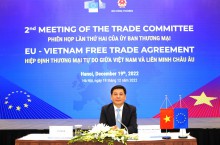The News
Laos' non-tariff measures and other trade regulations
The Lao government has simplified the tariff structure and is gradually revising non-tariff barriers. Laos places top priority on trade facilitation and was one of the earliest countries to ratify the WTO's Trade Facilitation Agreement.
The Lao government has simplified the tariff structure and is gradually revising non-tariff barriers. Laos places top priority on trade facilitation and was one of the earliest countries to ratify the WTO's Trade Facilitation Agreement.
Trade barriers
The Lao government has simplified the tariff structure and is gradually revising non-tariff barriers. Laos places top priority on trade facilitation and was one of the earliest countries to ratify the WTO's Trade Facilitation Agreement.
Labeling and notation requirements
Labeling and notation have become an obligation for importers in Laos. Each imported or domestically produced product must be labeled in Lao before distribution. The label must include the product name, the trademark registered by the manufacturer and importer, the name and address of the manufacturer or importer/distributor, country of origin, price, weight, composition, direction of use, warning, date of manufacture and expiry date (in accordance with the product labeling regulation in Laos No. 2501/MOIC. DTD, December 16). This requirement is not applied consistently due to the fact that many Thai goods are regularly imported and distributed without using the Lao language.

Restricted products and prohibited imports
In February 2010, the Lao government issued a Decree on import and export licensing procedures for controlled goods, No. 180 PMO, in order to comply with WTO and World Customs Organization (WCO) rules. Laos also started implementing the Notice for non-automatic import and export licensed goods and goods subject to automatic import and export licensing, No. 0076/MOIC. DIMEX, Vientiane Capital, January 13, 2012.
Import regulations
The Lao Trade Portal website gives the most up-to-date requirements and regulations for the import of goods.
Dossiers of application for import licenses must be submitted to the provincial trade office where the importing enterprise is located. Import and export licenses are valid for the duration of the enterprise's operation, but investors must periodically notify the authorities that they intend to continue their business.
The Lao government offers duty-free vehicle import quotas to qualified individuals and companies.
For ordinary goods, the importer must have the following documents for each shipment:
- Bill;
- Inventory of goods;
- Transport documents;
- Bill of lading;
- A customs clearance report;
- Import licenses or licenses of relevant ministries (depending on the type of goods)
Importers of raw materials for re-export are required to have the same documents as other importers, except for contracts and import licenses. Auto importers, unless they are exempt from taxes, pay import duties, excise taxes, VAT and, potentially, taxes on luxury goods.
The exporter must have the following documents when registering the export declaration:
- Application for export declaration;
- Import/export licenses (only for goods under the control of the ministry or government, e.g. rough or polished diamonds);
- Invoices of goods;
- A packing list;
- Certificate of origin of goods and general preferential certificate of origin system (if any);
- Certificate of food hygiene for exported food;
- Industrial product certification for industrial products.
In order to import or export pharmaceuticals, food or chemical products, in addition to the above-mentioned documents, the importer must obtain a license from the Food and Drug Import Department of the Food and Drug Administration, Ministry of Health. Pre-shipment inspections are mandatory for exported goods in accordance with the requirements of the destination country.



